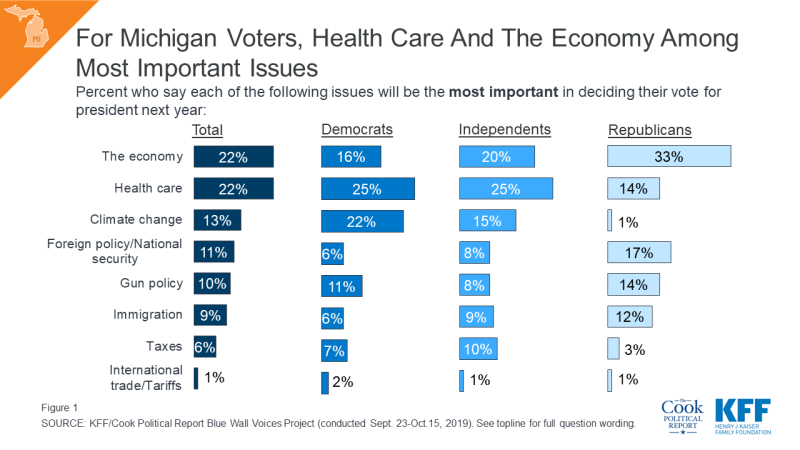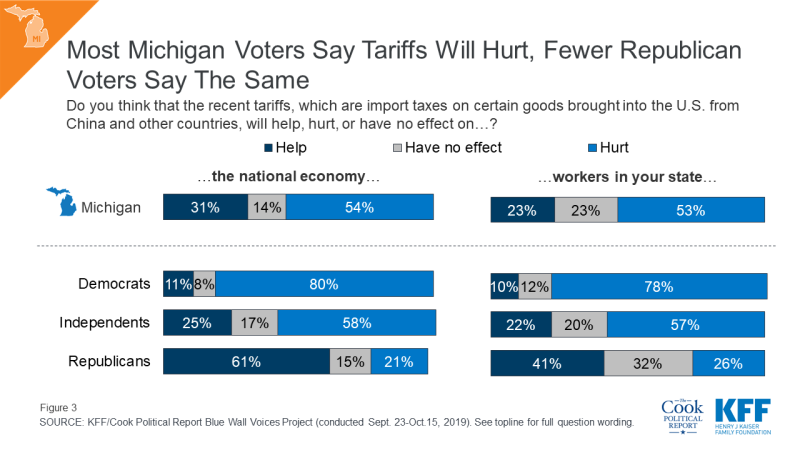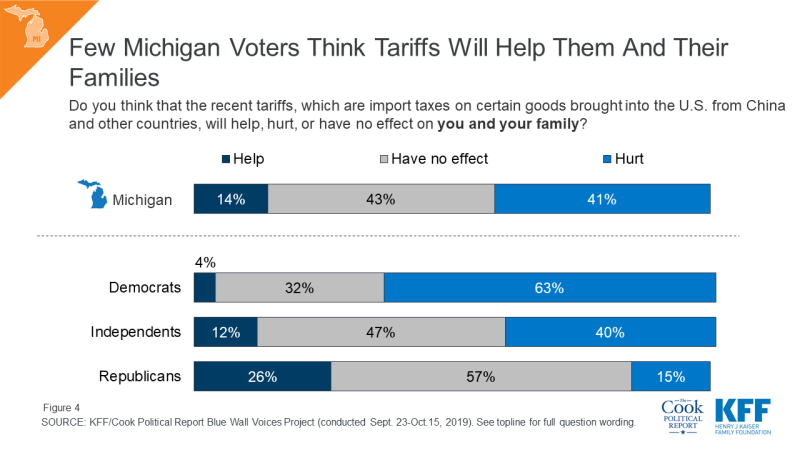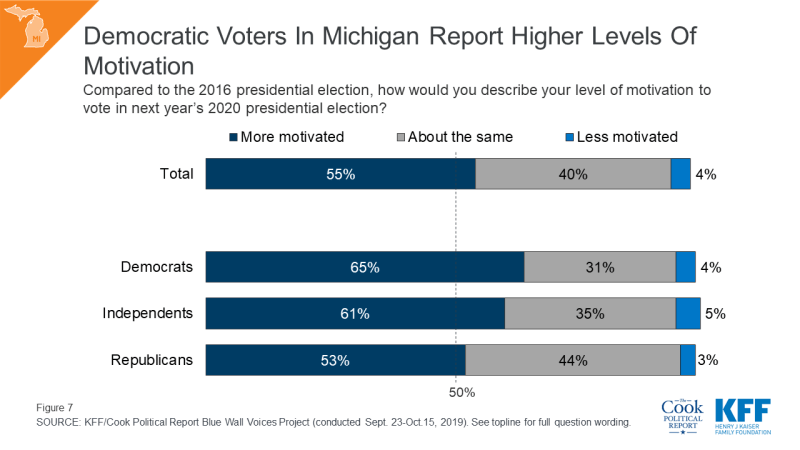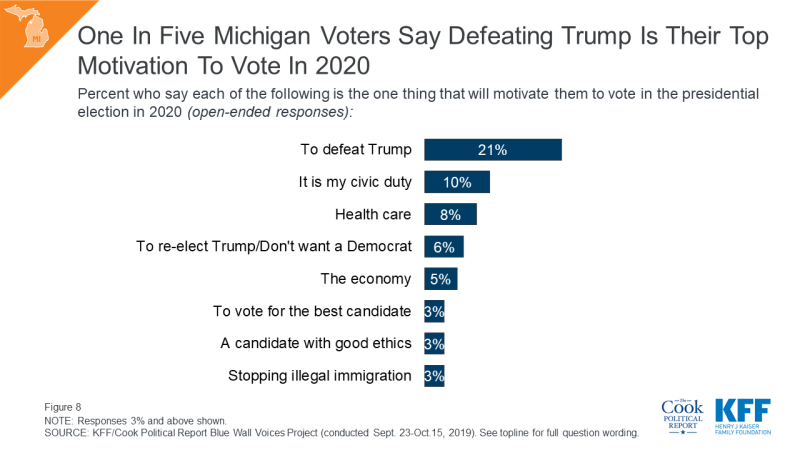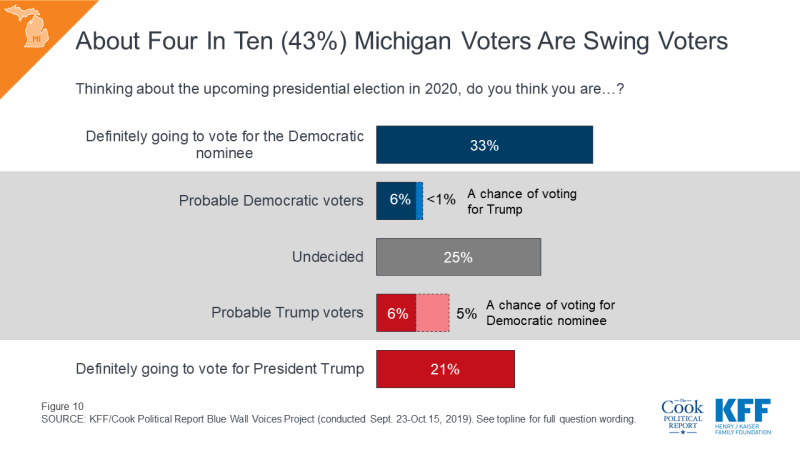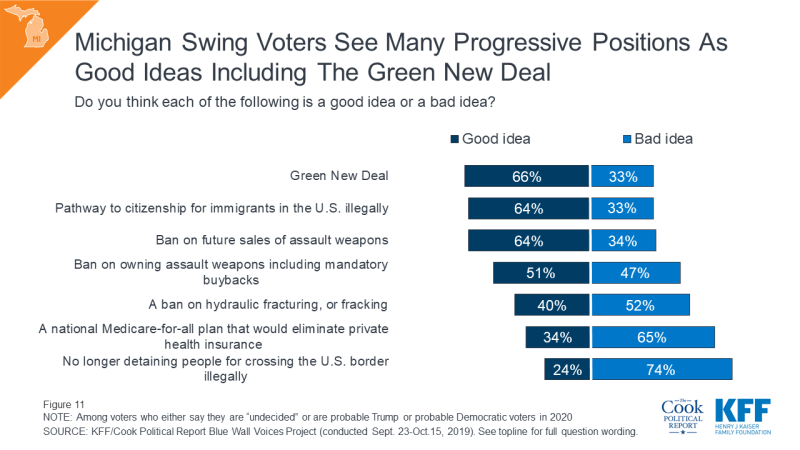Blue Wall Voices Project
Michigan
The Blue Wall Voices Project examines voters in the state of Michigan to get their perspectives on key issues and aspects of the 2020 election, including the role that health care and the economy may play in voters’ decisions. In addition, it gauges enthusiasm and vote choice leading up to the 2020 presidential election.
Overall, a larger share of Michigan voters say health care and the economy are the most important issues in deciding their vote for president in 2020. About one in five Michigan voters say health care (22%) and the economy (22%) are the most important issues to their vote, with smaller shares saying issues like climate change (13%), foreign policy and national security (11%), gun policy (10%), immigration (9%), taxes (6%), and international trade and tariffs (1%). Partisans are divided in their priorities, with one in four Democrats and independents choosing health care as their top issue, and one-third of Republicans choosing the economy as the most important issue.
With health care and the economy ranking above all other issues for Michigan voters, it is important to note that Michigan voters give President Trump very different marks on both of these issues. Half (51%) of Michigan voters approve of the way President Trump is handling the economy compared to four in ten (41%) who approve of the way he is handling health care.
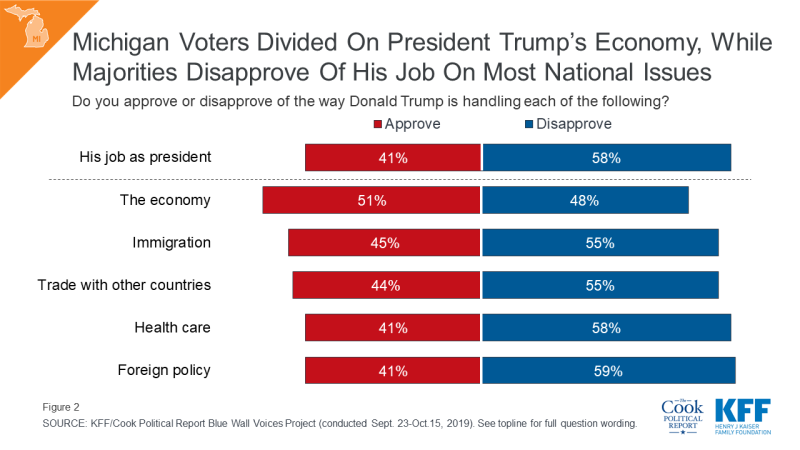
Figure 2: Michigan Voters Divided On President Trump’s Economy, While Majorities Disapprove Of His Job On Most National Issues
International Trade and Recent Tariffs
While voters do not rank international trade as one of the most important issues in deciding their vote next year, Michigan is a state expected to be most affected by the ongoing trade disputes with China and other countries. Overall, about half of voters – including majorities of Democrats and independents – say they think the recent tariffs will hurt both the national economy (54%) and workers in Michigan (53%). However, this opinion is only shared by about one-fourth of Republican voters (21% and 26%, respectively) compared to majorities of Democrats (80% and 78%, respectively) and independent voters (58% and 57%, respectively). Six in ten Republican voters in Michigan (61%) say the recent tariffs will “help” the national economy and about four in ten (41%) say the tariffs will “help” Michigan workers.
Partisans also differ in how they perceive the recent tariffs will impact them and their families. More than six in ten Democratic voters in Michigan (63%) say the recent tariffs will hurt them and their families while about half of independent voters (47%) and a majority of Republican voters (57%) in the state say they will “have no effect.” Overall, few voters (14%) say the recent tariffs will help them and their families.
Health Care Priorities among Michigan Voters
When asked specifically about health care priorities that Congress should work on next year, over six in ten say that lowering prescription drug costs (69%) and maintaining protections for people with pre-existing conditions (64%) should be the top priority for Congress. These priorities substantially outrank other policy proposals such as repealing and replacing the ACA, expanding government aid for people who buy their own health insurance, and implementing a public option or national Medicare-for-all plan. These top two priorities persist across partisans, with large shares of Democratic voters, independent voters, and Republican voters naming lowering prescription drug costs and maintaining pre-existing condition protections as top priorities. However, over half of Republican voters (56%) also say that repealing and replacing the ACA should be a top priority. Implementing a national Medicare-for-all plan, a topic that has dominated health care discussions in the 2020 Democratic primary, is not a top issue for all voters or for Democratic voters, specifically.
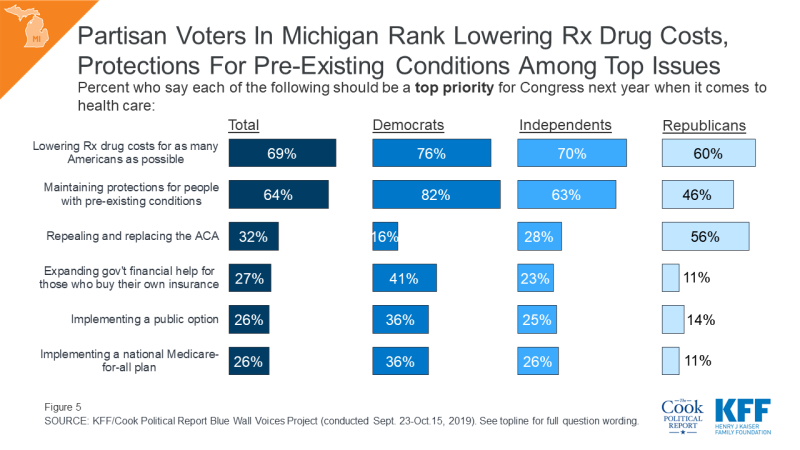
Figure 5: Partisan Voters In Michigan Rank Lowering Rx Drug Costs, Protections For Pre-Existing Conditions Among Top Issues
Michigan Voters’ Economic Outlook
Turning to the economy, the other top issue for voters during the 2020 election, voters in Michigan are split about what they think the economic forecast will be like for the next 12 months. Similar shares of Michigan voters say that during the next 12 months, the U.S. will have bad times (50%) and good times (48%). Views on the economic outlook are largely partisan with roughly eight in ten Democrats (78%) saying bad times are ahead and roughly eight in ten Republicans saying good times are ahead (83%). Independent voters are more divided, with four in ten saying the U.S. will experience “good times” while 54% say they expect “bad times” ahead.
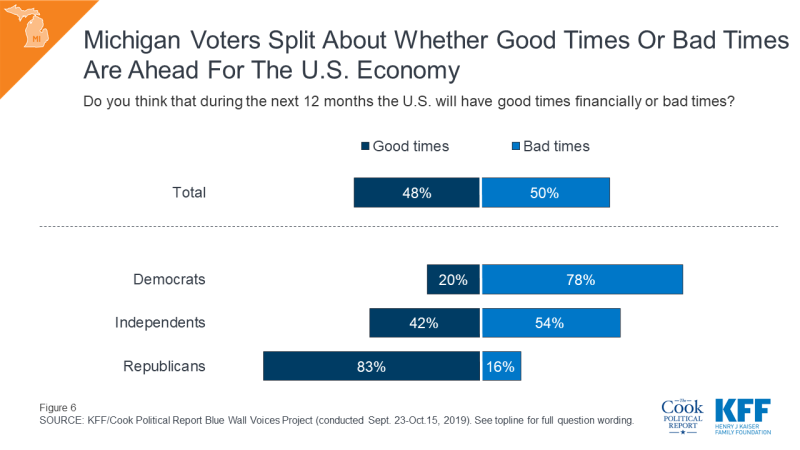
Figure 6: Michigan Voters Split About Whether Good Times Or Bad Times Are Ahead For The U.S. Economy
The Democratic Primary in Michigan and Preview of the General Election
More than half of Michigan voters say they are more motivated (55%) to vote in next year’s election than in the previous presidential election. This includes a majority of Democrats (65%), independents (61%) and Republicans (53%) saying they feel more motivated than they did in 2016. Yet, similar to other states included in this analysis, a larger share of Democratic voters say they are “more motivated” than the share of Republican voters who said the same.
Given the high levels of motivation as the next presidential election approaches, the Blue Wall Voices survey explored what could be motivating voters. When asked specifically what the one thing is that will motivate them to vote in the 2020 election, voters offer an array of open-ended responses, with the most frequently volunteered response relating to defeating President Trump (21%), followed by those who offered responses related to civic duty (10%) and health care (8%). Small shares of voters cited reasons such as wanting to re-elect Trump and not wanting to elect a Democrat (6%), or the economy (5%).
With more than four months before the 2020 Michigan Democratic primary, Senator Elizabeth Warren garners the most support among likely Democratic primary voters followed by Vice President Joe Biden and Senator Bernie Sanders. One-fourth of Michigan Democratic primary voters say Senator Warren is their first choice for the 2020 Democratic ticket and a combined 43% of voters say she is their first choice or second choice.
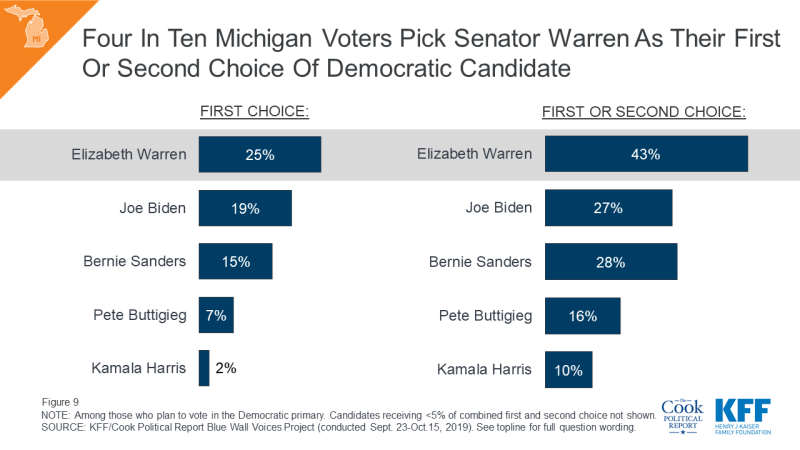
Figure 9: Four In Ten Michigan Voters Pick Senator Warren As Their First Or Second Choice Of Democratic Candidate
Overall, many voters (43%) in the state remain uncertain about who they will support in the 2020 election. One-third of Michigan voters say they are definitely voting for the Democratic nominee and about one-fifth (21%) say they are definitely voting for President Trump. In contrast, one-fourth of voters say they are undecided, and few voters say they are either probably voting for the Democratic nominee (6%) or for President Trump (11%). This poll finds there are few persuadable Michigan voters meaning that, while they currently support one candidate, they could be convinced to support the other party’s candidate.
Michigan swing voters (those who are either undecided voters or say they are probable but not definite Trump or Democratic voters) are supportive of three progressive platforms: the Green New Deal, a pathway to citizenship for immigrants, and a ban on future sales of assault weapons. But, on the other progressive platforms included in this project, Michigan voters are either split or a majority say they are a bad idea. This includes two-thirds of Michigan swing voters (65%) who say a national Medicare-for-all plan is a “bad idea.”

